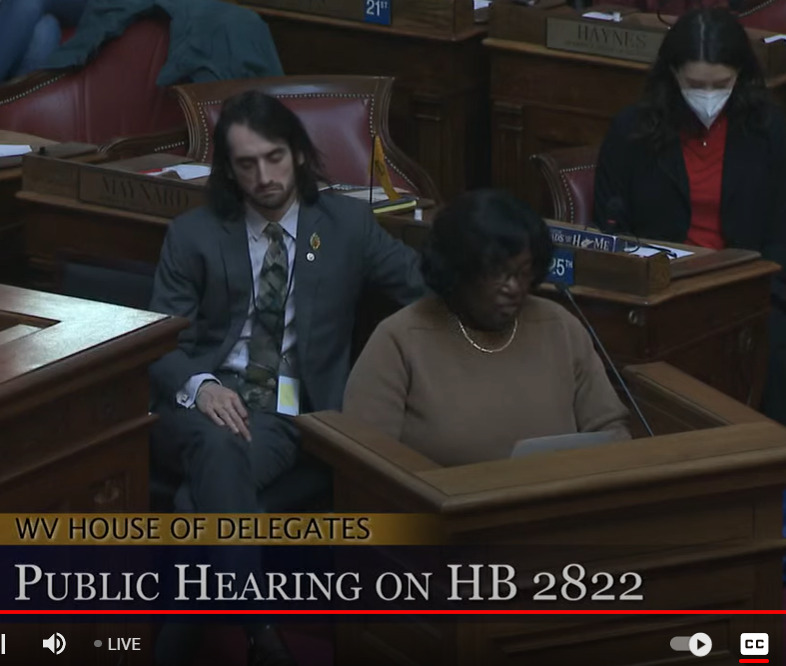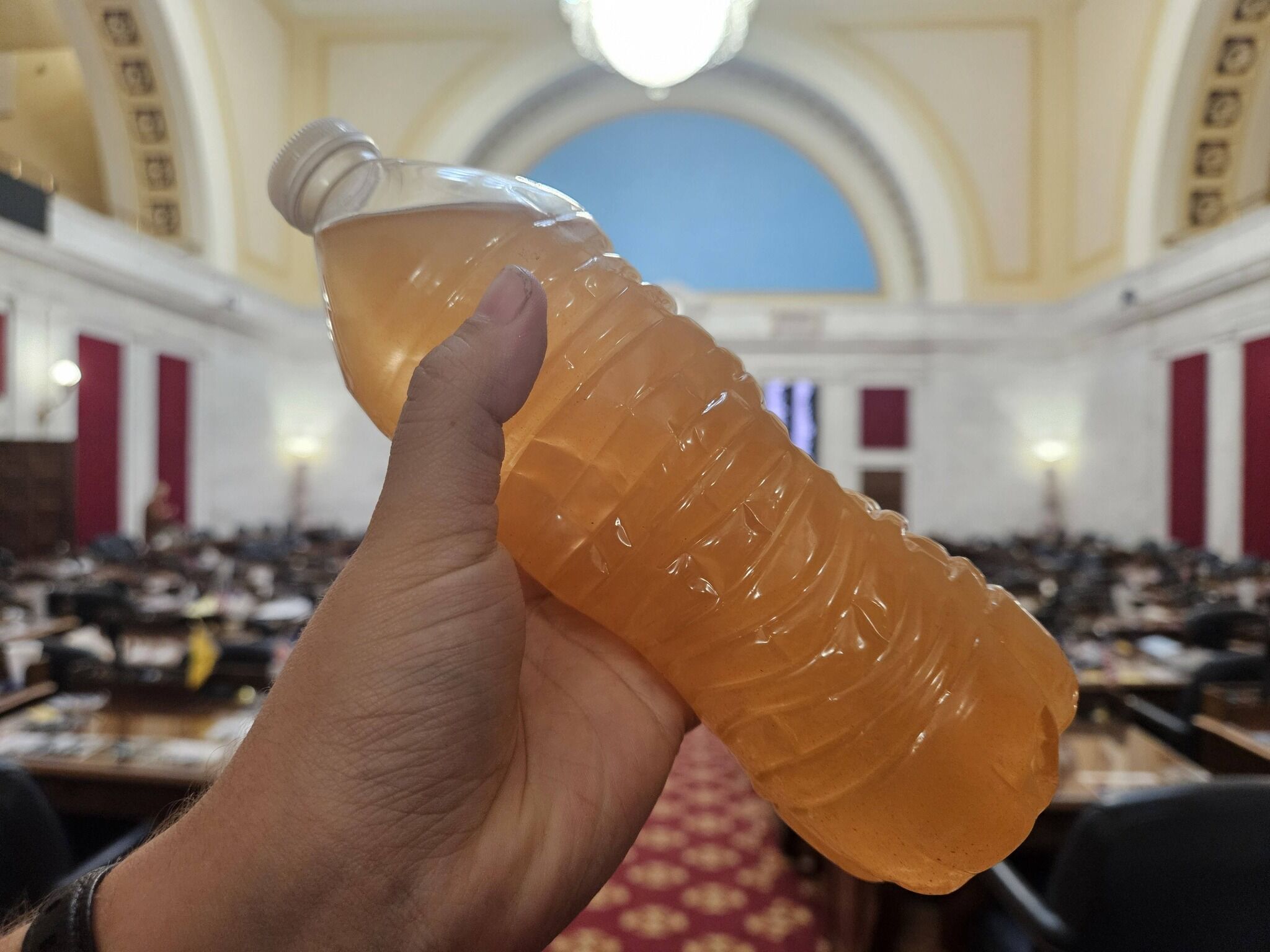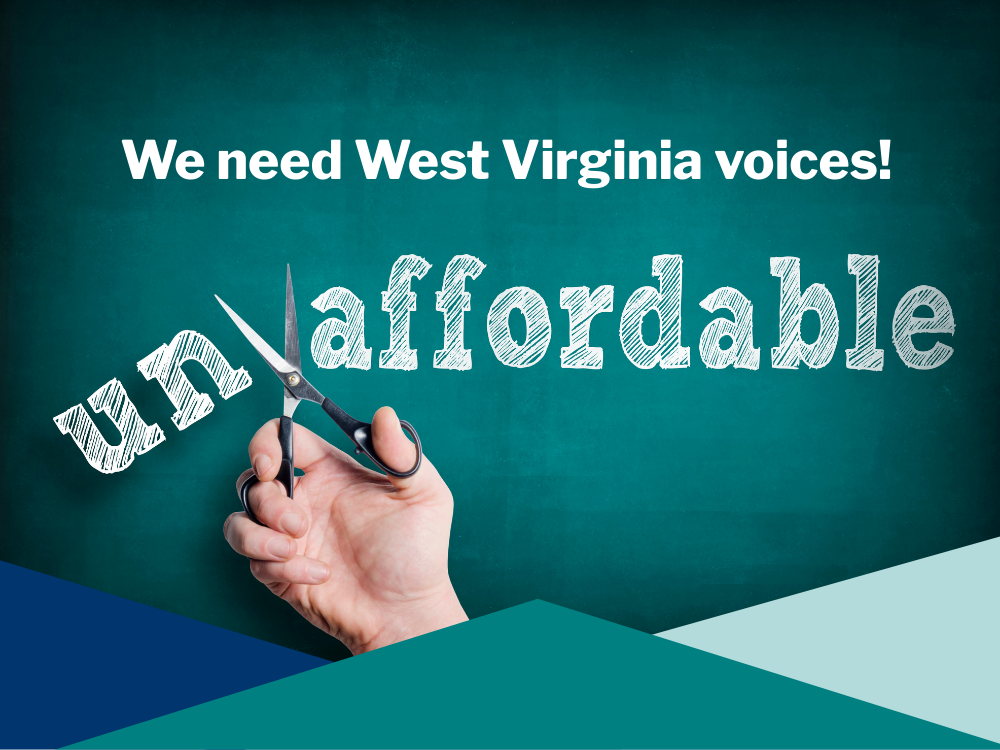- Like
- Digg
- Del
- Tumblr
- VKontakte
- Buffer
- Love This
- Odnoklassniki
- Meneame
- Blogger
- Amazon
- Yahoo Mail
- Gmail
- AOL
- Newsvine
- HackerNews
- Evernote
- MySpace
- Mail.ru
- Viadeo
- Line
- Comments
- Yummly
- SMS
- Viber
- Telegram
- Subscribe
- Skype
- Facebook Messenger
- Kakao
- LiveJournal
- Yammer
- Edgar
- Fintel
- Mix
- Instapaper
- Copy Link
Below is a collection of written comments submitted and testimonies given on January 28, 2022 on the Repeal of Conditional Nuclear Ban (HB 2882 & SB 4).
- Mary Wildfire, Roane County
- Dr. Jim Kotcon, WV Chapter of the Sierra Club
- Pam Nixon, WV NAACP
- Gary Zuckett, WV Citizen Action Group
I wish to speak on the proposal to repeal the so-called ban on nuclear power in WV. Actually, it says the Public Service Commission can’t site a nuclear power plant unless it can show that 1) there is a safe way to dispose of wastes, 2) it won’t make our electric rates rise, and 3) it won’t violate our environmental laws. I participated in the Zoom call on this question a week ago in which we were told that our concerns certainly merited examination and discussion but that “we can’t have that conversation until the ban is repealed.” I want to know—in fact I demand to know—which of those restrictions is stopping us from having a discussion, why the ban must be repealed before we can look at the risks of terrorism, the impossibility of safe waste disposal and the likelihood that any nuclear power plant built in WV will have enormous cost overruns and delays, like essentially every nuke ever built, or. Why we should believe that THIS TIME, it won’t be more expensive than any other options for producing electricity. And why you expect us to believe the conversation will happen now AFTER you repeal the ban.
I have two other questions I believe no one else is asking. I have heard from a number of sources that WV has several dams that when built about a century ago were intended to provide hydroelectric power, but the turbines were never added. Hydro power has some environmental problems but they come from the dams, not the turbines—and the dams are already there. Why is there never discussion of this option, which one source claims could provide all of WV’s power needs with some to spare?
My other question is this. On that Zoom call I heard some claims that seemed dubious, but not the one I expected, that this would be a completely different design and not be radioactive but would burn, perhaps, only 100% organic unicorn manure. No– it’s a conventional nuke but a small one. Which means that, like every other nuclear power plant, it will have leftover, highly radioactive fuel rods which, since oddly enough no one is volunteering to have stored in their backyard, will likely remain basically onsite until…well, until the collapse which is looking increasingly likely due to the inability of governments anywhere to behave responsibly. So. A thousand years from now, when the mountaintop removal sites are growing trees and the streams have cleared of acidity and the uncapped wells are no longer releasing toxins, how much radioactivity will still remain in these sites? And given that radioactivity is invisible, odorless, completely indetectable unless you happen to be carrying a Geiger counter—how will you warn all future generations that they must stay away from this region? And how can you justify the threat to thousands of future generations, so we can run our hair dryers?
I note that it’s not only WV suddenly embracing nuclear power—25 states are considering similar ideas. Obviously there has been a PR campaign to push this, probably long planned. Can our legislators see through it? Will you look seriously at the very real issues involved, will you consider safer, cleaner alternatives?
Thank you,
Mary Wildfire, Roane County
Testimony Of Dr. James Kotcon Regarding HB 2882 and SB 4, Repealing the Ban on Nuclear Power in West Virginia.
West Virginia Chapter of Sierra Club. Jan. 28, 2021
On behalf of the ~2600 members of the West Virginia Chapter of the Sierra Club, we remain unequivocally opposed to the proposed bills, and to the use of nuclear power.
The proposed bills to repeal section 16-27A-1 and 16-27A-2 seem to have no real justification. Those sections of state code specify conditions needed to build a nuclear power plant in West Virginia.
An applicant must demonstrate to the WV Public Service Commission, first, that there is a permanent repository for nuclear waste, second, that the facility would comply with state environmental standards, and third, that it would be economically feasible for ratepayers.
Do the sponsors of this bill seriously want to admit to voters that they support a nuclear power plant that is not economically feasible, that won’t comply with environmental standards, and where nuclear waste would need to be kept exposed on site for thousands of years?
Proponents claim that this represents economic development for West Virginia, and everyone agrees we need economic development. But one of the few advantages that West Virginia has in competing for industry is our low cost of electricity, or at least that used to be. While electric rates keep spiraling upward, adding the cost of a nuclear power plant seems certain to accelerate those rate increases.
Proponents insist that modern new technologies will bring down costs and will be inherently safe. Has any ever heard of a nuke coming in ahead of schedule or under budget? It has never happened. Why would any rational person believe that somehow, suddenly, things will tun out all right. In case after case, claims of low-cost electricity turn out to be an illusion, and costs skyrocket. Utilities that thought they were building profitable power plants end up in bankruptcy, or forcing ratepayers to cover exorbitant costs.
A real conservative would want to pursue the cleanest, quickest, safest and cheapest sources first, and nuclear power is none of those!
Other proponents insist that all this bill says is that we are open for discussion. But when a permissive bill was adopted last year, new members of the Public Service Commission pointed to that to claim the Legislature was demanding those provisions. The net result is that ApCo ratepayers will soon be forced to pay major increases in electric rates to cover costs for power plant upgrades that are unlikely to be economically sensible.
I fear that proponents of a nuclear power plant will use the same approach to claim that, since the Legislature repealed the requirements for a plant to economically feasible, or comply with environmental rules, or have permanent waste disposal, that becomes a Legislative intent that the PSC must approve a plant, even when it meets none of those common sense requirements.
If there truly is some miraculous new nuclear technology that produces no radioactive waste, is cheap and safe, and can be built quickly, please let other states prove it first. Please do not let West Virginia become yet again a sucker for phony economic development claims. We can’t afford it.
Comment Opposing HB 2882 And SB 4: Repealing a Ban on Construction of Nuclear Power Plants
Thank you for allowing us this space today.
The West Virginia NAACP is opposed to HB 2882 and SB 4: Relating to repealing a ban on construction of nuclear power plants.
The WV Code, §16 – 27 A- 1 and §16 – 27 A- 2 were written into law to protect the residents of West Virginia from “undue hazard to the health, safety and welfare” until permanent disposal of radioactive waste can be safely and successfully developed. Nothing has changed since the Code was written. There is no need for urgency to repeal the ban. The technology for small modular nuclear reactors is not marketable yet, and there is no historical reference to base a conclusion on.
During a January 18th bipartisan town hall discussion on the pros and cons for ‘advanced’ nuclear power in West Virginia, it was stated the repeal of the ban is needed to allow discussion. I respectful disagree. A special legislative committee can be convened to research information and have discussions over several months before making a decision, without repealing the ban.
Depending upon your final decision, this would allow you time to draft legislation for construction and operation of nuclear energy facilities, and for safe permanent disposal of radioactive waste. Repealing the ban will remove the safety valve protecting West Virginia, and leave a void.
You and the Governor have worked to improve our economy, attract and expand businesses, and increase tourism and our population, according to the State of the State. Our State is called ‘Wild and Wonderful’ and ‘Almost Heaven’ for a reason –its beauty. It is one thing to attract businesses and population, and another to retain them. Don’t make it more difficult by inviting another industry with the potential to cause further degradation of our land, air and water that can last for hundreds of years.
In planning for the future, we have the opportunity to advance greener energy: wind, solar, hydroelectric, and geothermal power. On the West Virginia Geological & Economical Survey home page is a map that shows we are “a relative hot spot in Eastern U.S. with subsurface temperatures high enough for geothermal energy generation on a commercial scale.”
The West Virginia Office of Energy page states, “Mile-or-more-deep wells can be drilled into underground reservoirs to tap steam and very hot water … for use in … electricity generation, direct use, and heating and cooling.” This is what we should develop. Again, WV NAACP is in opposition to HB 2882 and SB 4.
Thank you for your time.
Pamela Nixon, Chair
WV NAACP Environmental & Climate Justice Committee
Public Hearing Testimony on HB 2882 & SB 4 Repeal of Conditional Nuclear Ban
By Gary Zuckett, Exec. Director, WV Citizen Action
1-28-2022
Note: I regret that I’ll not be able to attend this public hearing in person due to being in quarantine after testing positive for Covid, so I’m preparing this statement to share with all House members as the bill has already passed out of committee. It used to be that public hearings were granted BEFORE a committee took action on a bill so as to get public input during the committee process. This new process of holding hearings after a bill has been reported to the floor makes these hearings more of a window dressing on a bill that’s already on its way to passage. I would implore leadership to take a look at this and seek a remedy to restore the full value and importance of hearing from citizens on policies that will affect them and their communities before the “train has left the station”.
When I volunteered at WV Citizen Action and lobbied to get this bill passed in 1996 it was 17 years after Three Mile Island, and only 10 years after Chernobyl. Fukushima wouldn’t happen for another 15 years. Passage of this original bill made WV safe from ever experiencing such catastrophes or.
The legislature made proper findings for their conditions placed on siting commercial nuclear power. Please read them before you vote on this bill. They still make total sense and have not changed materially since then.
According to this Chemical Engineering News article: “More than a quarter million metric tons of highly radioactive waste sits in storage near nuclear power plants and weapons production facilities worldwide, with over 90,000 metric tons in the US alone. Emitting radiation that can pose serious risks to human health and the environment, the waste, much of it decades old, awaits permanent disposal in geological repositories, but none are operational. With nowhere to go for now, the hazardous materials and their containers continue to age.”
This waste, which will be deadly for countless generations, is a serious problem with nuclear power which remains to be solved. We’ve had nuclear power now since 1958 and we still don’t have a place to dump its toxic, deadly waste. Do we want West Virginia dotted with nuclear hot spots? I hope not!
Proponents say not to worry, these so-called advanced nukes are modular, self contained and much smaller than the Three Mile Island/Chernobyl ones. They still use up toxic radioactive fuel that has to be contained somewhere. Since there is really no place that wants this stuff, it ends up being stored on site. In West Virginia? I hope not!
The original bill was passed before the 9/11 terrorist attack, which brings me to another drawback to opening up WV to Nukes right now. What would be the result of an intentional explosion at one of these atomic power plants? Would it contaminate only a city, a county, or a whole region of our state?
What will it cost? The original atomic power plants were promoted as being able to produce energy “too cheap to meter”. We all know how that turned out. Truth is its the most expensive way to generate electricity.
Proponents say that these ‘new generation’ modular nukes will be great for addressing Climate change but they’re still in development and won’t go online until the end of this decade. We need climate solutions now, not in 10 years!
Finally, what’s the rush? These so-called ‘advanced’ atomic power plants by all accounts aren’t to be operational until ‘the end of the decade’. That gives us plenty of time to research, debate, and do something better than just throwing out a law that has protected West Virginians from the dangers of nuclear power for 25 years.
The prudent thing to do would be to put these bills on hold, assemble an interim study, gather experts on both sides of this critical issue, and make a measured and informed decision. If we’re going to open up WV to nuclear power, let’s do it with proper regulations and safeguards for its people, economy and environment.
Thank you for taking time to hear my testimony.




